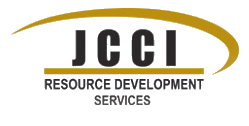NEH Dialogues on the Experience of War
National Endowment for the Humanities (NEH)
Dialogues on the Experience of War
Catalog of Federal Domestic Assistance (CFDA) Number: 45.163
Funding Opportunity Number: 20181115-AV
Submission Deadline: November 15, 2018—stay tuned for a grant announcement in 2019!
Summary
NEH offers the Dialogues on the Experience of War (Dialogues) program as part of its current initiative, Standing Together: The Humanities and the Experience of War, which aims to use the humanities as a means of encouraging open discussion and “helping Americans to understand the experiences of service members and in assisting veterans as they return to civilian life.” Dialogues supports the study and discussion of important humanities sources about war because these materials can help U.S. military veterans and others consider issues that their wartime and military service raise. The program’s goal is to reach veterans, but programs should also be open to active military service members, their families, and the public at large.
Projects may being as early as May 1, 2019, but must begin no later than September 1, 2019.
Applications have a 15-page limit (double-spaced) with font of at least 11 points.
Eligibility
Any U.S. nonprofit organization with 501(c)(3) status is eligible, as are state and local governmental agencies and federally recognized Indian tribal governments. Eligible organizations include institutions of higher education.
Awards
Up to $100,000 over 12 to 24 months for
- conducting at least two sustained discussion programs for no fewer than fifteen participants; and
- creating a preparatory program to recruit and train program discussion leaders
Unallowable Expenditures
- preparation of courses for high school students, undergraduates, or graduate students (other than those designed to train undergraduates or graduate students—in particular, veterans who are undergraduates or graduate students—as NEH Discussion Leaders);
- commercial, for-profit, or proprietary textbook research or revision;
- doctoral dissertations, theses, or research pertaining to a graduate degree program;
- promotion of a particular political, religious, or ideological point of view;
- advocacy for a particular program of social or political action;
- support of specific public policies or legislation;
- psychological therapy, medical treatment, and career counseling;
- lobbying; or
- projects that fall outside the humanities; the creation or performance of art; creative writing, memoirs, and creative nonfiction; and empirically based social science research or policy studies.
- costs related to social events such as banquets, receptions, and entertainment;
- tuition or enrollment fees for participants (participation in the discussion groups must be made available free of charge); and
- the cost of travel associated with scholarly research unrelated to the project.
“Musts”
Preparatory Training Requirement
Applicants must demonstrate their ability to create a program that will train discussion facilitators (NEH Discussion Leaders). Applicants will need to demonstrate they can put together a team to develop this training portion of the grant. The training program should include the following:
- close study of the humanities sources at the heart of the discussions;
- modeling and practice in leading humanities discussions (for example, posing questions designed to explore texts and elicit discussion of the texts’ contemporary relevance; articulating rules of civil discourse; encouraging group inquiry; moderating disagreements);
- developing the discussion leaders’ knowledge and awareness of the diverse backgrounds and perspectives of military veterans and service members; and
- building a virtual or actual network of discussion leaders and resources for future versions of the program and/or new programs.
Successful applicants will show a commitment to thorough and sustained discussion.
Suggestions regarding the format and methodology for the training program include items like these: lectures with break-out discussion groups, how-to demonstrations on the art of close reading, modeling how to conduct fruitful conversations or moderate online forms, the creation of videos, and practice in facilitating sample discussion sessions.
Discussion Programs
For the discussion portion of the grant, discussions must include the following items:
- treat at least two historically distinct conflicts in depth: one from the earliest wars through World War I, and a second from the wars after World War I;
- focus on the close study of sources drawn from at least two distinct genres (such as historical writings, memoirs, military biographies, speeches and letters, philosophical writings, documentaries, fiction, and artworks); and
- engage participants in sustained dialogue about the selected humanities sources and the issues that they raise.
All discussions should encourage participants to seriously explore questions about war and military service. Topics for discussion may include the ethics of war, ideals of military service, the place of veterans in society, heroism, suffering, loyalty, and patriotism.
Discussion programs should involve multiple meetings of a sufficient duration to allow participants to engage in deep and inclusive discussion.
Evaluation
Proposals are evaluated based on grant announcement criteria and focus on these three areas:
- Intellectual quality (incorporation of humanities sources),
- Feasibility of preparatory training program and discussion sessions, and
- Impact.

